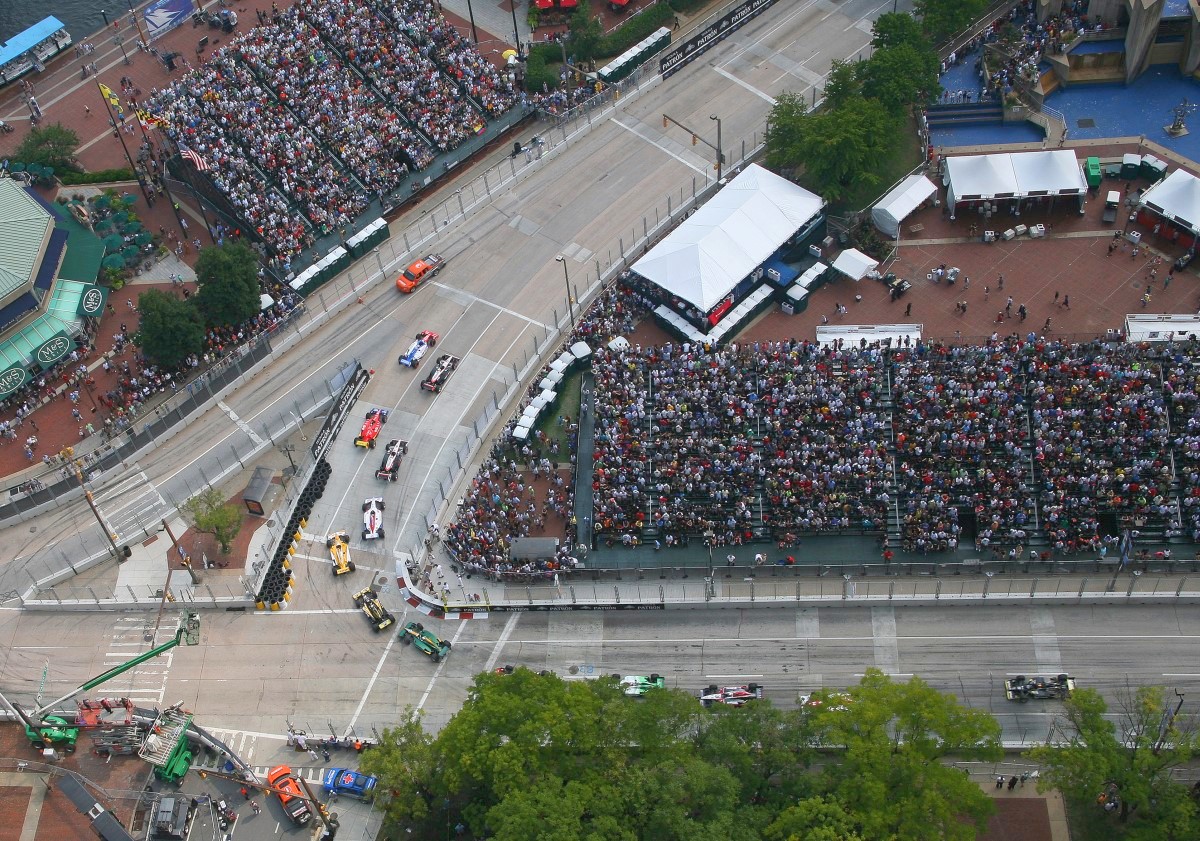High-interest loan led to unpaid tax in Baltimore
 |
| Permanent race facilities have far higher start-up costs than temporary street circuits. But the mistake street circuit race promoters make is not having the right financing in place to carry it through the early years to overcome the startup costs. Business 101 folks. |
Two months before the start of the Baltimore Grand Prix, the race's organizers, desperate for cash, entered into a $1.1 million loan they believed was necessary to save the event.
But the two-month loan — which allowed the lender to collect more than $500,000 in interest and other charges — ended up draining funds needed to pay city taxes, the former CEO of Baltimore Racing Development says.
Now, with Baltimore Racing Development facing large debts, some are complaining about the loan's terms and asking why the lender was paid while taxes — including more than $450,000 in city amusement and admissions taxes — and other debts were owed. The lender, Virginia-based Thermopylae Sciences & Technology, also received perks such as race-day executive suites and free food and drink for dozens of guests.
"When I left the company, I was assured there was enough money to pay the amusement taxes," said Jay Davidson, former chief executive officer of the company that ran the Grand Prix. "I'd like to know what happened to the money."
Another race organizer says the lender was entitled to the money under terms of the loan agreement.
Details about the loan, contained in documents obtained by The Baltimore Sun, come as Baltimore Racing Development faces more than $12 million in debts to local and state agencies, contractors and investors. The company, which is trying to reorganize under new leadership, has less than $100,000 in cash, officials have said.
Race executives say they needed the money to pay sanctioning fees to IndyCar and other racing groups. Without those fees, which totaled $2.2 million, racing teams would not have participated in the event held over the Labor Day weekend.
Kenneth R. Banks, another Baltimore Racing Development manager, said that after taking a hard look at company finances in June, he learned that $900,000 was still owed on the sanctioning fee — and the company had only two weeks to pay it.
"We didn't have anywhere near the $900,000," said Banks. "IndyCar was ready to pull the plug. Tens of thousands of people had purchased tickets. People had spent money on airfare and hotels. If the race didn't happen, it would have been catastrophic for Baltimore.
"I called many of my banking friends. Nobody would touch it. Finally, I called AJ Clark. We agreed to pay whatever we had to pay. Really, AJ and I saved the race."
Banks, the president of Banks Contracting Inc., sits on an advisory board for Thermopylae and with Clark is a co-owner of a small investment company that owns a 4 percent stake in the Grand Prix.
Banks said that even though he solicited Clark for the Thermopylae loan, the three other managers negotiated terms of the agreement.
Banks defended the loan's terms, and said of Clark: "He got us out of a hole. We were desperate."
Under terms of the loan, Thermopylae was to be repaid the $1.1 million plus $165,000 shortly after the race weekend. Thermopylae received a 2 percent share in Baltimore Racing Development, about $350,000 in perks, including a suite for more than 10 people for five years, and passes to exclusive receptions and viewing spots. The contract said race officials would promote Thermopylae to the media and identify it and Clark as "substantial contributors/benefactors contributing to the success of the Grand Prix."
The contract also allowed Thermopylae to assess late fees and related penalties.
Clark entertained former Secretary of State Gen. Colin Powell, the race's grand marshal, during the festival.
Baltimore Racing Development gave Clark access to a special account holding about 35 percent of the revenue brought in through ticket sales — some $1.66 million — as a safety net for Thermopylae. After the race was over, Davidson thought Clark would withdraw the company's principal investment, plus $165,000 in interest, leaving about $400,000 that the race company planned to use to pay the city's amusement and admissions tax. Baltimore Sun
